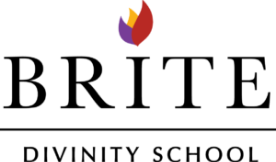December 15, 2023
“The Next Brite long-range plan charts a course to a future the school ’s founders could not have imagined,” said Brite Divinity School’s interim president, the Rev. Michael Cooper-White, as he concluded his service in December. “It will offer President-elect Stephen Cady guidance and assure him of strong support, including sufficient resources for some bold innovation.”
Developed in a year-long process that received input from a broad spectrum of the school’s constituent groups—faculty, staff, trustees, alumni/ae, and other supporters—Next Brite was officially adopted by the Board of Trustees at its October 26-27 fall meeting. A joint board-faculty retreat held in early September put finishing touches on the extensive document, which will guide the school’s leaders over the coming five years.
While degree programs will remain at the core of the institution’s educational offerings, new programmatic initiatives envisioned include Centers for Theology and Justice, and Lifelong Learning. Also fortified and funded at a new level will be Brite’s accompanying people who are discerning their vocational callings. Unlike in past generations, when a majority of enrollees were preparing to serve as ministers in congregations, a high percentage today are undecided about their callings after completing theological education. The Vocation Development initiative will offer counseling and guidance as students contemplate a broad range of possible careers, including chaplaincies, leadership in social justice and service ministries, and engagement in other arenas as well.
Brite has long offered a menu of continuing education events, and upheld the quest for justice as a key value. The new Centers for Lifelong Learning and Theology and Justice will redouble these emphases. A full-time director, the Rev. Dr. Lizette Acosta, has just joined Brite to lead Lifelong Learning. The Center for Theology and Justice, and Vocation Development effort will be headed by two existing Brite faculty members, Drs. Jeremy Williams and Russell Dalton respectively. “We are grateful these colleagues have agreed to take on added responsibilities to spearhead important new efforts,” said Michael Miller, Dean and Executive Vice President.
In the process of developing the plan, leaders reaffirmed Brite’s mission of preparing leaders, with a vision of “a world transformed by God’s mercy, love, and justice.” Undergirding revised degrees and the new programmatic initiatives are eight guiding principles, which include deeper commitment to diversity and inclusiveness, greater relevance to radically changed societal and ecclesiastical realities, and greater accessibility for a wide range of learners.
To avoid the common planning pitfall of generating exciting new ideas but providing no additional resources, Brite’s board committed $1.5 million to the new initiatives from unrestricted funds, to be used over a three-year period. Funding is also guaranteed to convert from a residential school to one marked by a “multimodal ethos,” with an expanded array of online and hybrid courses, workshops, webinars, podcasts, and other offerings.
As planning proceeded, a generous trustee committed $3.5 million to endow a “Church Innovator” position. Soon to be selected, staff will be available to consult with congregations and other ministries seeking to reimagine their futures, and will also teach courses in innovative leadership, to be determined by the faculty.
Chair of the Board of Trustees, Dr. Stuart McDonald, summed up leaders’ excitement about the new plan. “Prior planning efforts have been marked largely by continuity with what has been,” McDonald said. “Next Brite, while honoring our long legacy, holds promise of taking us to a new place in terms of relevant, excellent preparation of and support for transformative leaders. The board is eager to work with our faculty, staff, and a new president in an exciting, bold new chapter.”

